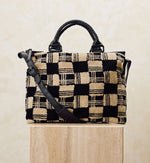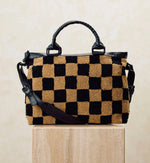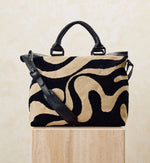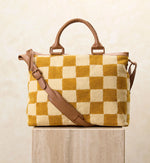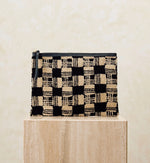
Plastic Free July
Join the Movement: Plastic Free July with Cleobella
At Cleobella, conscious living is woven into every fiber of what we do. This Plastic Free July, we’re proud to stand with a global community working to reduce single-use plastic waste—and that includes the hidden plastic found in our closets.
While Plastic Free July lasts just one month, our commitment to reducing plastic and designing responsibly is year-round.
Why Plastic Free July Matters
Plastic pollution is one of the most urgent environmental challenges of our time. From landfills to oceans, millions of tons of plastic are discarded each year—harming marine ecosystems and entering our food and water systems.
But plastic isn’t just around us. It’s also on us.
Why Plastic-Based Fabrics Like Polyester Are Harmful to Your Skin
Most people don’t realize that polyester—a common fabric used in everything from athleticwear to bedding—is essentially plastic. It’s derived from petroleum and processed with chemicals to create soft, durable fibers. But what’s convenient for fast fashion isn’t always kind to your skin (or the planet).
Here’s why natural fibers are better for your body and the Earth:
1. Polyester Doesn’t Breathe
Unlike natural fibers such as organic cotton or linen, polyester traps heat and moisture. This creates a warm, damp environment on your skin—ideal for bacteria and fungal growth. The result? Irritation, clogged pores, and even breakouts.
2. It’s Chemically Treated
Polyester fabrics are often coated with chemicals like flame retardants, anti-pilling agents, and synthetic dyes—some of which can remain on the fabric after washing. These may contribute to allergic reactions, hormonal disruption, or skin sensitivities, especially in those with eczema or rosacea.
3. It Causes Friction and Static
Polyester’s slick texture can cause friction on the skin, which may lead to rashes or exacerbate existing skin conditions. It also generates static electricity, which can make clothing cling uncomfortably and irritate sensitive areas.
4. Microplastics Impact Skin and Planet
Every time polyester is washed, it sheds microplastics—tiny synthetic fibers that enter waterways, marine life, and potentially our bodies. While research is still evolving, there is growing concern about how microplastic exposure may impact long-term health, including skin wellness.
How Cleobella Leads with Plastic-Free Practices
From design to delivery, we take a holistic approach to sustainability—minimizing plastic use at every stage.
Compostable Garment Bags
Since 2021, we’ve shipped every Cleobella garment in compostable, plant-based TIPA bags instead of plastic polybags—reducing landfill waste and supporting circular design.
Plastic-Free Packaging
All shipping materials are plastic-free and either compostable or recyclable, including:
-
Recycled paper hang tags
-
Natural shell or corozo buttons
-
OEKO-TEX® certified recycled trims
Natural, Skin-Friendly Fabrics
Nearly 90% of our styles are made with plant-based fibers such as GOTS certified organic cotton, linen, and regenerative textiles—offering breathability, comfort, and a healthier experience for your skin.
How You Can Participate in Plastic Free July
Small swaps lead to meaningful change. Here are a few ways to reduce plastic in your wardrobe and beyond:
-
Choose natural fibers over synthetic ones
-
Opt for reusable bags, water bottles, and utensils
-
Skip single-use plastic packaging
-
Support brands with plastic-free shipping
-
Share and educate others about low-waste living
Plastic-Free, All Year Long
At Cleobella, we believe plastic has no place on your skin or in the environment. From our artisan-made, natural fiber collections to our zero-plastic packaging, we’re redefining what sustainable fashion looks and feels like.
Plastic Free July is just one chapter in a longer journey toward thoughtful living. Thank you for walking it with us.
